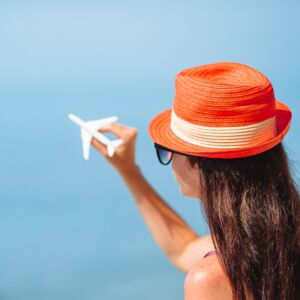

Explore Portugal
Explore deals, travel guides and things to do in Portugal
What to know before visiting Portugal
Portugal officially the Portuguese Republic, is a country located on the Iberian Peninsula, in southwestern Europe, and whose territory also includes the Atlantic archipelagos of the Azores and Madeira. It features the westernmost point in continental Europe, and its Iberian portion is bordered to the west and south by the Atlantic Ocean and to the north and east by Spain, the sole country to have a land border with Portugal. Its two archipelagos form two autonomous regions with their own regional governments. Lisbon is the capital and largest city by population. One of the oldest countries in Europe, its territory has been continuously settled, invaded and fought over since prehistoric times. The territory was first inhabited by pre-Roman and Celtic peoples (at the time of the first large-scale Roman invasions in Western Iberia, they preponderantly were the Lusitanians, the Gallaecians, the Celtici and, to some extent, the Conii). These peoples had commercial and some cultural contact with Phoenicians, ancient Greeks and Carthaginians. It was later ruled by the Romans, followed by the invasions of Germanic peoples (most prominently, the Suebi and the Visigoths) together with the Alans, and later the Moors, who were eventually expelled during the Reconquista. Founded first as a county within the Kingdom of León in 868, the country officially gained its independence as the Kingdom of Portugal with the Treaty of Zamora in 1143.In the 15th and 16th centuries, Portugal established one of the longest-lived maritime and commercial empires, becoming one of the main economic and political powers of the time. At the end of the 16th century, however, Portugal suffered a war for the crown succession which led to the incorporation of the country into the Spanish monarchy during the Iberian Union. By the early 19th century, the accumulative crisis, events such as the 1755 Lisbon earthquake, the country's occupation during the Napoleonic Wars, and the resulting independence of Brazil in 1822 led to a marked decay of Portugal's prior opulence. This was followed by the civil war between liberal constitutionalists and conservative absolutists over royal succession, which lasted from 1828 to 1834. The 1910 revolution deposed Portugal's centuries-old monarchy, and established the democratic but unstable Portuguese First Republic, later being superseded by the Estado Novo (New State) authoritarian regime. Democracy was restored after the Carnation Revolution (1974), ending the Portuguese Colonial War and eventually losing its remanent colonial possessions. Portugal has left a profound cultural, architectural and linguistic influence across the globe, with a legacy of around 250 million Portuguese speakers around the world. It is a developed country with an advanced economy which holds the 14th largest gold reserve at its national central bank, the 8th largest proven reserves of lithium, with the weight of exports representing 49% of its GDP in 2022 and high living standards. Additionally, it ranks highly in peacefulness, democracy, press freedom, stability, social progress, prosperity and English proficiency. A member of the United Nations, the European Union, the Schengen Area and the Council of Europe (CoE), Portugal was also one of the founding members of NATO, the eurozone, the OECD, and the Community of Portuguese Language Countries. -Wikipedia
General info
Time Zone
GMT 00:00
Currency
Euro
1USD = 0.88 EUR
Recommended Clinics in Portugal
Find the clinics that we recommend in Portugal
Recommended Doctors in Portugal
Find the doctors that we recommend in Portugal
Get inspiration for your next medical trip
Read our blogs and learn more

















